What we publish
This page describes the board documentation that we publish. It is accurate from April 2020, so you might not be able to find some earlier board documents on our website. If you have questions about board meetings prior to April 2020, please contact us.
Board documents that we publish
We want our governance and decision-making processes to be open and transparent. One way of achieving this is by publishing information and documents relating to decisions of the CLSB board.
Below is a summary of the information that we publish.
| Information | Purpose | Timing |
| Dates of scheduled board meetings | To allow stakeholders and members of the public to contact us in advance if they feel a particular issue should be considered | As soon as the meeting dates are set, usually at least six months in advance |
| Dates of extraordinary board meetings | To give notice to stakeholders that an extraordinary meeting has been called at which the board will discuss an urgent, discrete issue | As soon as the meeting is called |
| Agendas for scheduled board meetings | To help people determine whether the board will be discussing anything of interest to them, so they can monitor the outcome | Prior to the board meeting |
| Papers for scheduled board meetings | To ensure transparency around the evidence put to the board and to help people understand the decisions that are made |
Within 14 days of the board meeting |
| Minutes of all board and committee meetings | To record deliberations of the board and explain the basis on which any decisions have been taken |
Draft approved by the Chair: within 14 days of the board meeting Final version: upon approval at the board’s next meeting |
| Board Decision Notes | To draw together various aspects of the deliberation process and evidence base behind certain types of significant board decisions | Upon approval at a board meeting |
Board documents that we do not publish
Our starting point is to publish all the information described in the table above. Rarely, we will withhold information from publication if there is a good reason to do so.
We might withhold a document (or information contained in a document, such as part of the minutes) where publication would:
A. Amount to processing personal data in a way that is not permitted by data protection laws or is contrary to best practice.
B. Breach an obligation of confidentiality owed to a third party.
C. Breach any other legal obligation.
D. Disclose commercially sensitive information.
E. Disclose legal or other professional advice in relation to confidential matters.
F. Exacerbate a risk under consideration.
G. Disclose emerging strategy or policy, where this could cause uncertainty or undermine the policy intention.
How to tell whether a document has been withheld
Our board agendas indicate where a paper has been withheld. The agendas also indicate the reason for withholding the paper, using the classification codes above (i.e. one of the letters A through G). Where appropriate, a footnote may be used in the agenda to give more information about the specific reason for withholding publication.
Sometimes we will be able to publish a withheld document at a later date, because the reason for withholding the information no longer applies. We might do this, for example, by issuing a Board Decision Note which appends all historic documents relating to the decision in question.
If you would like to know whether a particular document could be published in the future, please contact us and we will do our best to advise you within the scope of our legal obligations.
